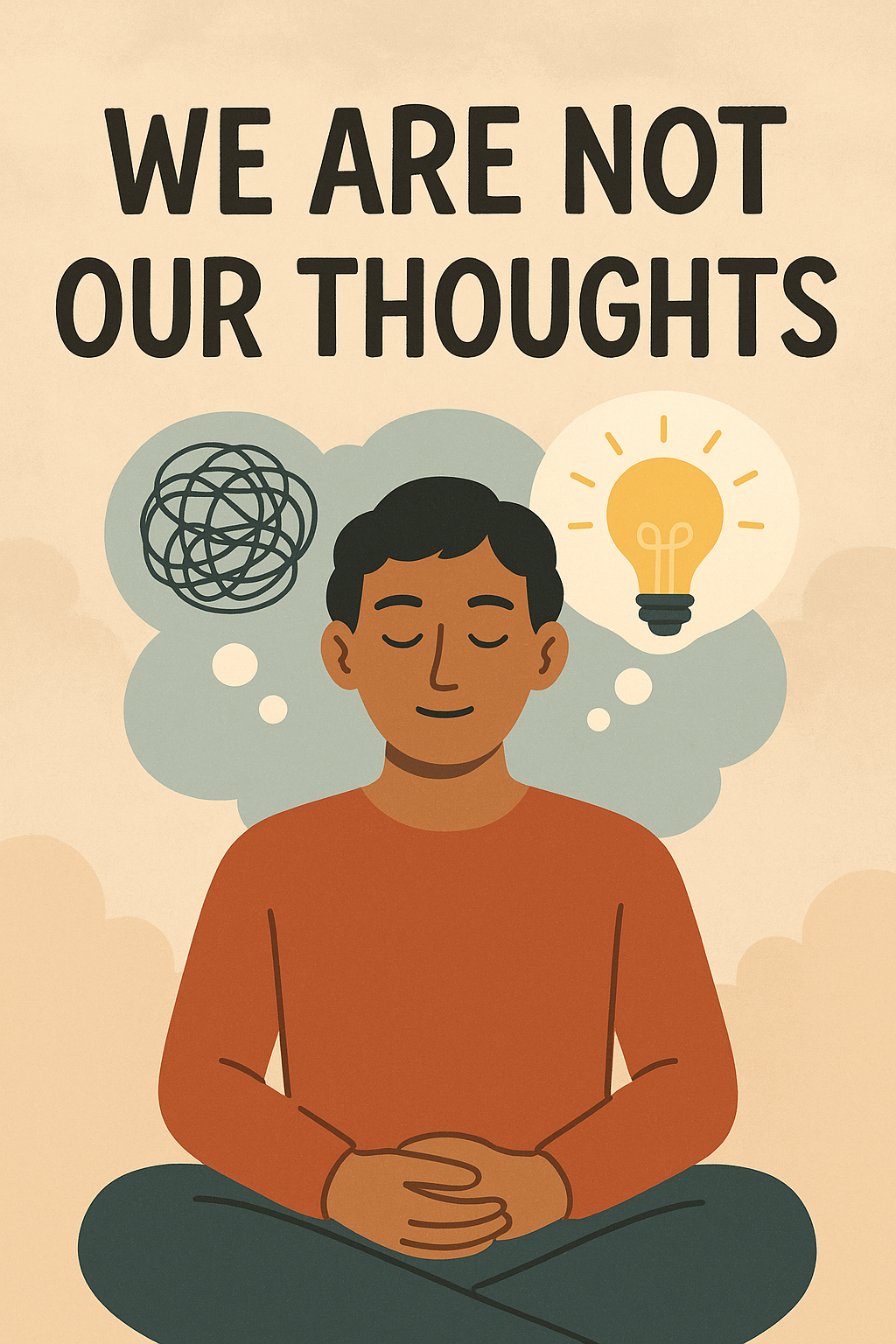Have you ever noticed how your mind keeps talking, even when you wish it would stop?
You might be sitting quietly, and suddenly an old memory pops up, or a voice in your head starts whispering, “You should have done better…” or “What if this goes wrong?”
It’s part of being human. Research in cognitive psychology shows that our brain generates tens of thousands of thoughts every single day. Most of them come and go automatically — like clouds passing through the sky. We can’t control what appears, but we do have a say in what we pay attention to.
The Inner Conversation
Sometimes it feels like there are two voices inside us:
One says, “You can do it, go for it!”
The other says, “Don’t even try, you’ll fail.”
And there we are, standing in the middle, unsure which to believe.
This internal dialogue is natural. It’s how our mind tries to protect us — by reminding us of potential risks, but also by motivating us to grow. The problem begins when one voice takes over and we forget that we are the ones choosing which voice to listen to.
Pause. Ground. Choose.
In those moments when thoughts are racing or pulling us in different directions, try a short “grounding pause.”
It can take less than a minute, but it can shift your whole day.
-
Name the thought.
Instead of getting lost in it, simply label it.
“That’s a worry thought.”
“That’s a self-criticism thought.”
This small step helps you create distance between you and the thought. -
Breathe.
Take a slow, deep breath.
It signals your nervous system that you’re safe, bringing you back to the present moment. -
Ask yourself:
If I act according to this thought — what will happen?
And if I choose differently — what could be possible?
You’re not fighting the thought; you’re inviting awareness.
And remember — even not choosing is a choice.
Sometimes, the kindest thing we can do is to pause and wait until clarity returns.
You Are Not Your Thoughts
This idea sits at the heart of mindfulness and many therapeutic approaches, such as Cognitive-Behavioural Therapy (CBT) and Acceptance and Commitment Therapy (ACT). They all remind us:
“Thoughts are not facts — they’re just mental events.”
The more we learn to watch our thoughts without judging them, the more freedom we gain to live intentionally — to act from our values, not from fear.
So next time your mind feels noisy, take that grounding breath.
Notice the thoughts passing through — and choose where to focus.
Because peace of mind doesn’t come from controlling what you think,
but from remembering that you are the thinker — not the thought.






